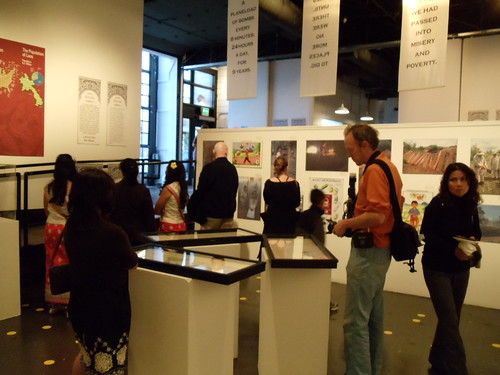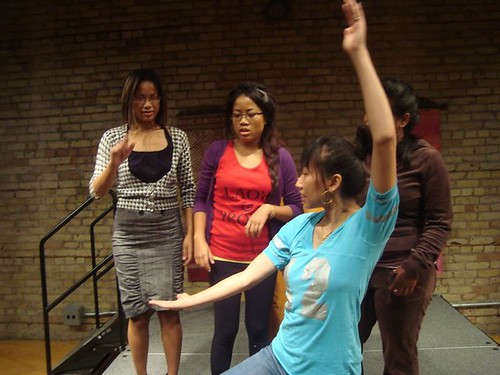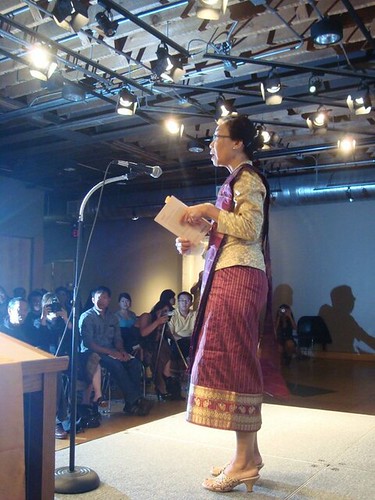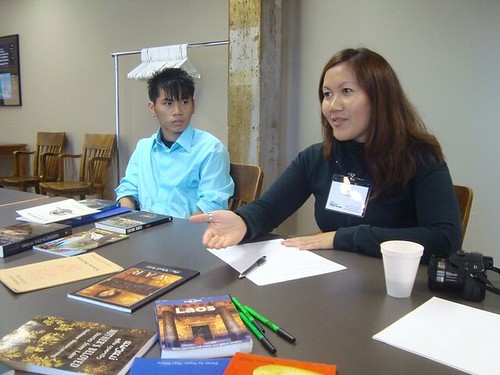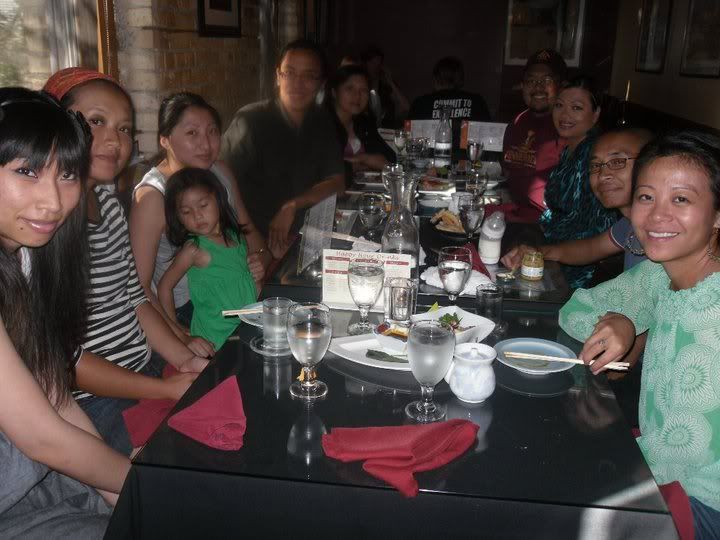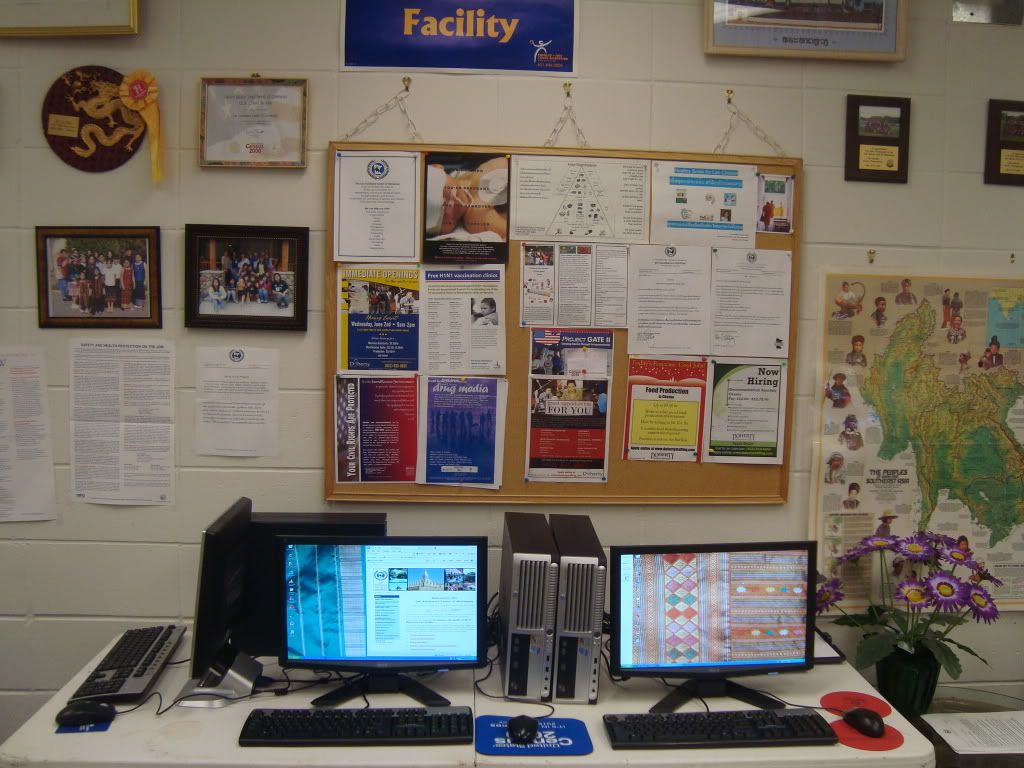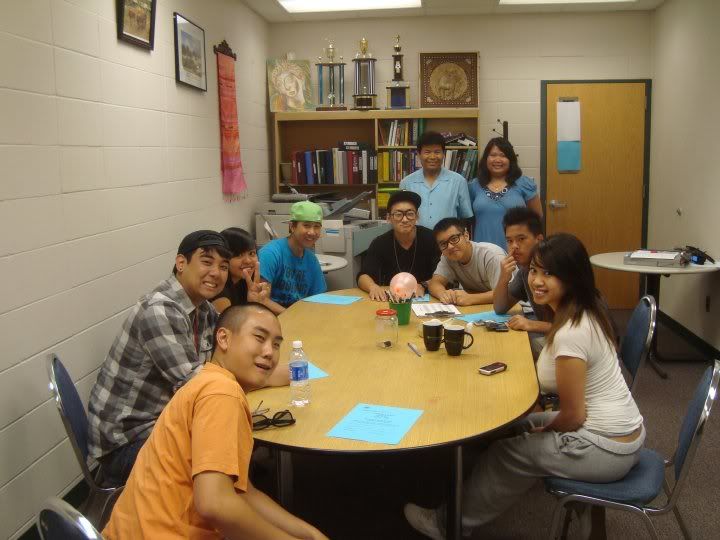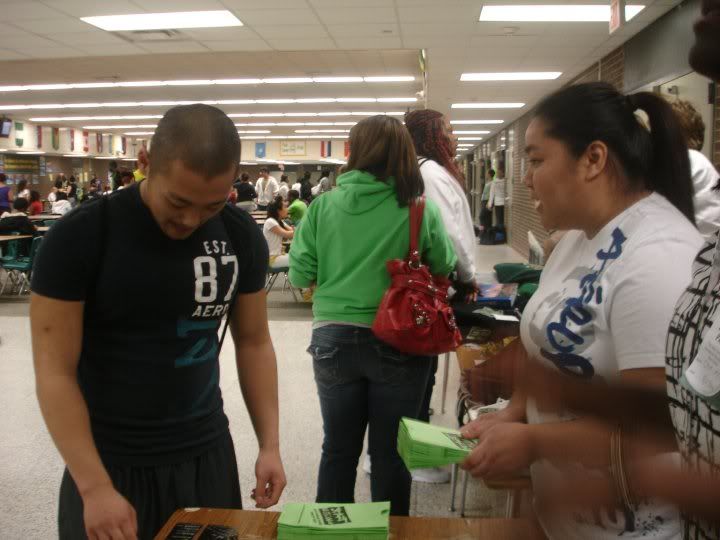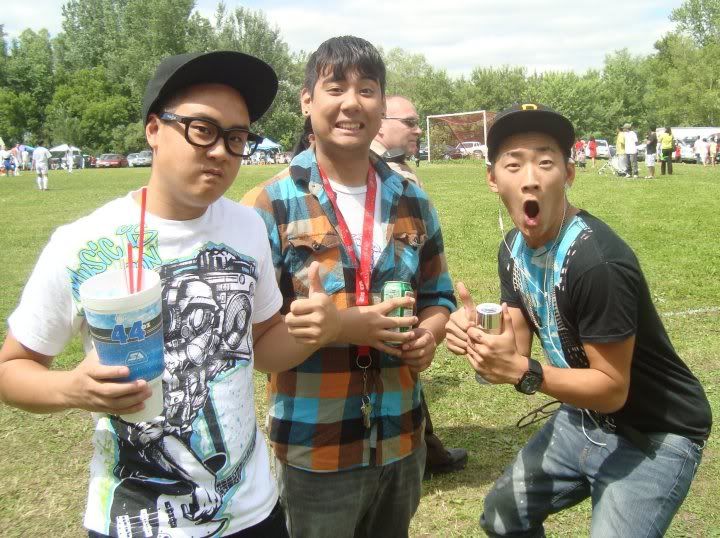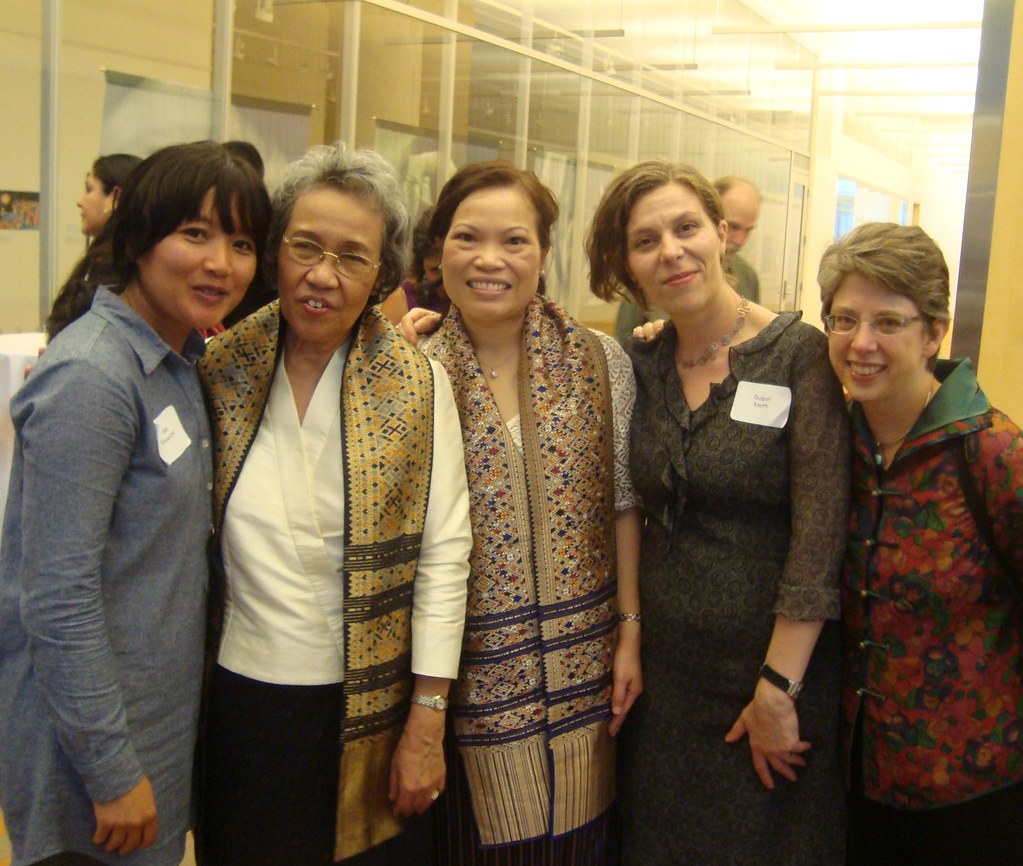The key topics for this month's discussions were around drugs in the Lao community.
During the first support group session on April 10th, clients were given an introduction about drugs. They had a chance to learn what we mean when we discuss drug abuse, especially regarding prescription drugs, the difference between illicit and over-the-counter drugs, and similar issues.
Lao Assistance Center staff also provided information on the cost of drugs, especially the legal differences and penalties for possession, usage and sales of illicit drugs. This session took place at the Lao Assistance Center in Minneapolis with a total of 10 clients in attendance.
During the second session of the month we had a total of 10 people attending, again at the Lao Assistance Center. On April 26, staff presented information on the various causes of drug usage and how it can vary in different people. The clients were also given information on the short-term and long-term impact and effects of drug usage. Our goal is to provide awareness about the types of drugs that are out there and the dangerous involved.
We also wanted client to differentiate between illicit and over-the-counter or prescription drugs, so staff provided a PowerPoint slides with notes and visuals to show pictures of drugs/forums as well as presented in Laotian.
People in the group were surprise to learn that there were people that take and abuse prescriptions medication aside beyond their medicinal purpose. Many had previously believed only illegal drugs could be an issue.
The Lao Assistance Center Staff also held a family session the same day. With the family and client there was a total of 13 people. During the family session, everyone was provided a fuller introduction to drugs, drug abuse, the different types of drugs, prescription vs. illicit, cause and effects of drug use.
On April 25, staff coordinated a youth leadership meeting with a total of 8 youths in attendance at the Lao Assistance Center. For this month, the topic was about preparing for the upcoming youth forum.
There was a group discussion about how we would incorporate the movie night concept with the drug media theme, youth considered what topics or pieces to present (audio/radio, television and movies, printed materials, digital and social media, etc.) The group then started their discussion about who they would present and on what format plus they started to research more into their topic. The primary objective of this month's youth leadership meeting was to prepare the youth for the youth forum.
During this time, the youth brainstormed what topic to discuss, the theme for the event, how to coordinate and present their information and plan among their group of 2 to 3 people about types of information to present.
Key meetings of the month include April 17th, 2010 when Phouninh Vixayvong met the community leaders in the Lao community; the purpose of the meeting was to establish a relationship with the community leaders and work with them to address the chemical health issues in the Lao Community as well as get input/insight into the community and its association with substances.
The meeting with the community leaders took place at the Lao New Year celebration event in Monticello. The all-day event brought in thousands of the Lao people in the state of Minnesota. At the event staff introduced themselves and the chemical health program as well as discussion about the community, etc.
The staff had contacted the community leaders two days before the event to set up a meeting and verify where they would like to meet. Phouninh Vixayvong introduced herself, the Southeast Asian Living Chemically program, the community leaders also introduced themselves and what they do. There were discussions about chemical issues, if they or someone they know have issues regarding ATOD they can contact us, the effects of drugs on the body and mind. Some questions that the community leaders have asked were things like; how can we, as the Lao Assistance Center or as the staff in the Southeast Asian Living Chemically Free program help them or the Lao people in the community. What are the process and resource we offer?
The meeting when well, the community leaders display interest in the services we offered and commented that the program would be good for the Lao community. They also commented that they would mention the program to the people in the community and refer anyone if they're interested in learning more about ATOD.
Staff meets every Monday of the week (April 5,12,19,26) with the Executive Director of the agency to discuss about progress of the chemical health program, give updates on group sessions, upcoming events, planning and other topic (training, conference, community outreach, etc.). It helps the E.D. become aware of the program, how staff are doing and get ideas about where staff are at and where we should be or what goals we have to achieve whether it is for the coming weeks, months or quarter. Program progress, outreach (community and youth), group sessions (support, family, youth, etc.) and what topics we'll be discussing with the groups for the months, planning and upcoming events including training, conferences, outreach, community leaders, etc. We also discuss issues that we may be encountering regarding the program as well as budget and other things. Staff and E.D. have a better understanding what to do or what to prepare for, issues are resolved or heard so ideas and ideas of how to resolve issues are brought up.
On April14th, Kinnary Pimpadubsee attended the Energy Drink: The Other 6 pack training, the purpose of attending the event was to gain more information on energy drinks. To find out the dangerous and the effects of energy drinks, gain insight on experts from the field and how it can apply it to the Lao community. The presenter shared information about the effects of energy drinks on metabolism and the body, the short and long term effects of caffeine intake, the effects of mixing energy drinks (with alcohol, dextromethorphan, nicoderm patches, nicorette gum, energy drinks that contain alcohol and other information.
There were a lot of valuable and helpful information that was presented at the training; it makes you think about the serious of caffeine intake and what people are doing with the energy drinks. Consider the information that were given and see how it incorporate or fit into the Lao community. Share information about the dangerous and effects of caffeine and energy drinks to the community (the effects on the body, metabolism, short and long terms and other effects associated with usage).
This month Kinnary Pimpadubsee attended the Substance Abuse Prevention Specialist Training on April 21,22,23,29, and 30 was to learn about the methods and approach to take when doing substance abuse prevention. This course offers up-to-date and evidence-based information in the prevention field such as looking at the logic models, cultural competency, planning, evaluation, assessment, sustainability, and other information. It was also a good opportunity to meet and network with the 20 or so health care professional that was present at the training which range from the principle of a school, school chemical health counselor, regional chemical health resource provider, etc. It was great to connect with those individual and get their input and comment in prevention for the 5 day training. A lot of information applies to what the Southeast Asian Living Chemically program, staff got to learn about the approach need to implement and run the program which runs from assessment of the targeted community, capacity, planning, implementation, evaluation and sustanability and cultural competency.
There were also evidence based program that has worked and can be use as models, logical models and other resources to make the program more effective.
On April 23, Pany Siharath and Phouninh Vixayvong attended the Population Specific Grantee's quarterly meeting at the MIWRC. During their time there they got to learn about the Minnesota Recovery Connection program which included TC AARMS( level I, II, and III Mentors), the Guia Project through PACT 4 and how its using recovery coaches or mentors with 1:1 contact at home and school. Staff were given information about the history of MRC and than later on about the historical trauma and issues that the American Indians faced. It a great opportunity to catch up with other grantees and get progress, updates and learn more about the history of the Native American.
Through the month of April, Phouninh Vixayvong has been meeting with individuals for a one-on-one individual sessions, those meeting took place at the Lao Assistance Center of MN every Monday, Tuesday, Wednesday, Thursday and Friday (one individual per day). There are a total of 6 individuals, during the meeting staff would do the chemical assessment and ROLE 25 with the client. 5 of the clients are learning and focusing on alcohol and related issues since there were referenced due to DUI and one on chemical use.
On April 27, all three chemical health staff meet with the program coordinator for our quarterly meeting at the Lao Assistance Center. During this meeting there were updates on progress and updates about the grantee quarterly meeting with the population specific (discussion about the American Indian trauma). Staff and coordinator also talked about the program, why it is important for staff to do community outreach in the NW Hennepin areas, and other topic relating to group sessions.

